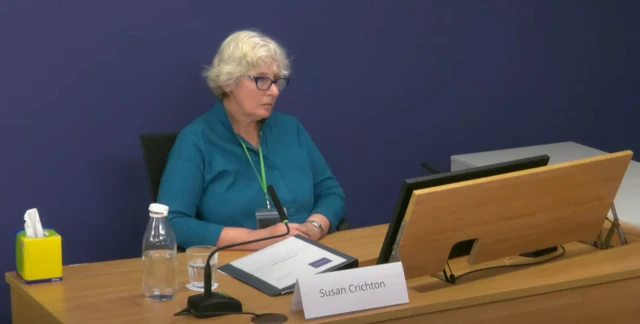Words matterpublished at 12:38 BST 23 April 2024
 Peter Ruddick
Peter Ruddick
Business reporter
When is a bug not a bug? Apparently, when it is an anomaly. Or an exception.
It has been revealed that, in 2013, the Post Office's then chief executive Paula Vennells had asked her "computer literate" husband for alternative words to describe a computer bug.
What was the type of alternative being sought? Something "non-emotive".
Amazingly, the two words he suggested made their way into a briefing note for a meeting with an MP looking into Horizon issues.
A briefing note Susan Crichton appears to have been involved in crafting. Although she said she must have a "mistaken" recollection of that.
The counsel to the inquiry suggested this was all a bit "Orwellian". Alternative words to try and elicit alternative emotions.


